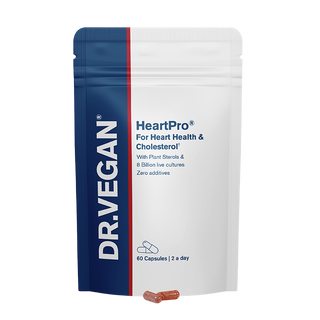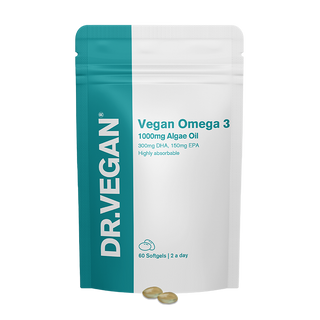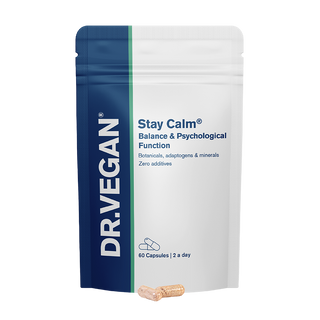Are men more likely to get heart disease?

Cardiovascular diseases cause around 17.9 million deaths around the world per year, with men being affected at a higher rate than women. Heart disease is primarily caused by the buildup of plaque on the artery walls, leading to a condition called atherosclerosis. Plaque is usually composed of oxidised cholesterol and restricts the function of the endothelium of the blood vessels, restricting blood flow and increasing blood pressure. This plaque accumulation can narrow or block the arteries, reducing blood flow to the heart, which may result in a heart attack. There are multiple factors at play, many of which are particularly prevalent in men.
What causes heart disease in men?
Heart disease is the leading cause of death for men worldwide. Despite modern advances in healthcare, men are disproportionately affected by cardiovascular diseases when compared to women. Here, we look into the reasons behind this discrepancy, the causes of heart disease in men, and the differences in symptoms and diagnosis between genders. We also explore how race and ethnicity can influence heart disease risk.
Biological factors
Men tend to develop heart disease earlier than women. Oestrogen, a hormone more abundant in women, offers some protection against heart disease before menopause. Oestrogen stimulates the production of HDL cholesterol, and decreases the production of LDL cholesterol. Oestrogen also improves the function of the endothelium of the blood vessels and improves their function. Once women reach menopause, their risk increases due to the drop in oestrogen, but on average, men develop heart disease 7 to 10 years earlier than women.
As men have much lower levels of oestrogen than women, they are not provided with the protection that oestrogen can have on cardiovascular health.
Hormonal differences
Testosterone has been shown to impact heart health in men. Higher testosterone levels might lead to higher LDL cholesterol, which is linked to increased heart disease risk.
Some studies have shown testosterone to promote the release of inflammatory molecules including cytokines, interleukins and tumour necrosis factor, which trigger inflammation in the arterial walls. Inflammation is a key factor in the progression of atherosclerosis because it encourages the formation of plaques and makes them more prone to rupture, leading to heart attacks or strokes. However, there is conflicting research on this topic, with other studies showing testosterone to have an anti-inflammatory effect and being beneficial for the prevention of heart disease. The science isn't yet clear on this topic, so it is best to make sure your testosterone levels are normal, not in excess, and not too low. Read more on the natural decline of testosterone in men in 'andropause, the 'male menopause'.
Lifestyle factors
Men are more likely to engage in behaviours that increase the risk of heart disease, such as smoking, poor diet, excessive alcohol consumption, and physical inactivity. This may be more relevant than the effect of testosterone due to the conflicting research. Lifestyle factors are also more modifiable and should be the focus of men who wish to decrease their risk of developing heart disease. It's a great idea to get regular cardiovascular check-ups and monitor your heart health as you improve lifestyle factors influencing your cardiovascular health. You may also enjoy reading 'men's health: the four main concerns'.
HeartPro®

Is it harder to diagnose in women?
Yes, diagnosing heart disease in women is more difficult, which may contribute to the perception that men are more likely to suffer from it. Here's why:
Atypical symptoms in women
Women often have more subtle or non-typical symptoms of a heart attack, including nausea, back pain, or fatigue; these are often mistaken for other conditions. Men, on the other hand, frequently experience classic symptoms like chest pain or pressure. The differences in symptoms are due to the anatomical and physiological differences between men and women.
Women may report the following symptoms:
- Fatigue, which can be severe and persistent.
- Indigestion or heartburn-like symptoms.
- Pain in the upper back or shoulders.
- Shortness of breath without chest pain.
Underrepresentation in research
For decades, heart disease research was conducted mainly in men. As a result, diagnostic tools and treatment guidelines were initially designed around male symptoms, which contributed to delayed diagnoses in women.
Diagnostic differences
Some tests for heart disease, such as angiograms or stress tests, may not be as effective in detecting diseases in women, as they are more likely to experience microvascular disease (disease of the smaller blood vessels), which is harder to detect than the more typical large artery blockages seen in men.
Heart disease symptoms in men: signs of heart disease
For men, the symptoms of heart disease can often be classic and include:
- Chest pain or discomfort (angina): Often described as a squeezing, pressure, or heaviness in the chest.
- Shortness of breath: Particularly during physical activity.
- Pain in the arms, neck, jaw, or back: This pain often radiates from the chest.
- Cold sweat, light-headedness, or nausea.
These symptoms may occur prior to or during a heart attack. It's important to mention that some men may experience minimal or even no symptoms before a heart event, which is known as a "silent heart attack".

Is your diet supporting your heart? Find out in your Diet Profile today.
Can race and ethnicity play a role in heart disease?
Yes, race and ethnicity can significantly influence the risk of heart disease. Studies have found that some racial and ethnic groups are at a higher risk than others, often due to a combination of genetic, lifestyle, and socioeconomic factors.
African
African men have a significantly higher risk of heart disease and related conditions, such as hypertension and stroke. According to the Centres for Disease Control and Prevention (CDC), African men have a 21% higher risk of heart disease compared to white men. There are several genes that occur in African populations that increase the risk of heart disease, including APOL1, PCSK9, SCN5A, G6PD, ADRB2 and MYH7. If you are black or have black ancestry, consider getting your genetics tested to assess your level of risk.
Asians
Certain subgroups within the Asian population, such as South Asians, typically have higher rates of heart and cardiovascular diseases. This could be due to genetics combined with lifestyle factors like diet. The genes responsible in the Asian population include ALDH2, CETP, KIF6, TCF7L2 and LPA genes. Again, Asian men should consider assessing their genetic risk with a genetic test.
Caucasians
Although Caucasians have a lower risk of cardiovascular disease when compared to Africans and Asians, they are not exempt. For Caucasians, it is the APOE, CETP and KIF6 genes and their variants that may increase the risk of heart disease. Again, genetic testing may help you understand your genetic risk and how to manage those risks.
What can be done to reduce the risk of heart disease?
There are many ways to reduce your risk of heart disease, including:
Eat a healthy diet
A healthy, balanced diet rich in fibre, vegetables and fruit is the best place to start. Fibre helps to remove cholesterol from the body, and the antioxidants in vegetable and fruit will help to prevent the oxidation of cholesterol within the arteries. Including omega 3 in the diet is also beneficial for cardiovascular health as it helps to prevent blood from becoming too thick, which reduces the pressure on the heart. Omega 3 is found in chia seeds, walnuts and algae oil, as well as oily fish.
DR.VEGAN's Vegan Omega 3 with 1000mg Omega oil, provides the optimal dosage of 300mg DHA and150mg EPA per serving. This supplement helps to improve and maintain the brain's performance, whilst supporting heart, skin and eye health.
Vegan Omega 3

Take regular exercise
Regular exercise is an essential part of maintaining a healthy heart. It can reduce blood pressure, improve blood triglyceride (blood fats) and LDL ‘bad’ cholesterol levels. Exercise makes the heart stronger and reduces stress. If you have experienced heart health issues, make sure you have the clearance from your doctor before you start a new exercise program.
De-stress
In a DR.VEGAN® customer survey of 545 people, 78% of people said they feel stressed at least one a week*. In the same survey, 94% of people said that going for a walk or being outside in fresh air and nature is effective for reducing feelings of stress*.
Stress raises blood pressure and puts strain on the heart. Exercise and making time to actively de-stress is important for cardiovascular health. Yoga and meditation are particularly good ways to de-stress. You may also enjoy reading 'the alarming reality of men's mental health'.
Know your stats
Knowing your blood pressure and cholesterol levels are a good place to start. Ask your GP or Pharmacist for total cholesterol, HDL, LDL and total cholesterol, and discuss your results with them.
Conclusion
Although men do have a higher risk of heart disease, both genders need to take active care to look after their cardiovascular health. Men should therefore check that their testosterone levels are normal, take steps to improve their diet and activity level, reduce stress and stop smoking.
*Online customer survey by DR.VEGAN® of 545 men and women, UK nationally representative, conducted in January 2023. All survey findings reflect our own efforts and have not been influenced or verified by any external organisations or third-party entities.
You may also enjoy reading:
- The impact of your gut on your heart
- How to improve libido over 50
- What causes erectile dysfunction?
- Is gut health and erectile dysfunction linked?
- Best diet for prostate health
- Can semen microbiome health affect male infertility?
References:
1. Gender differences in coronary heart disease: https://pmc.ncbi.nlm.nih.gov/articles/PMC3018605/
2.Testosterone increases coronary artery plaque in older men but helps anaemia and bone density https://www.bmj.com/content/356/bmj.j885#
3. Cardiovascular diseases (CVD): https://www.who.int/news-room/fact-sheets/detail/cardiovascular-diseases-(cvds)

















